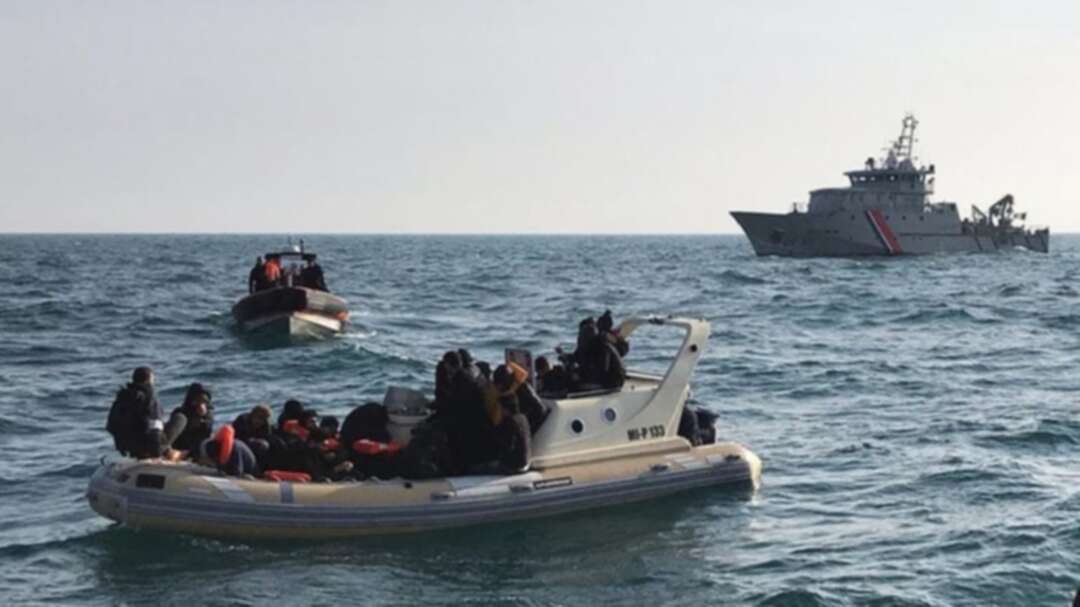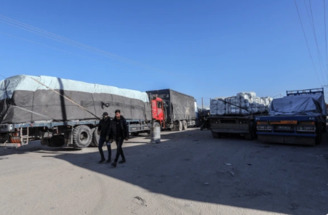-
Irregular migration to EU at lowest level since 2013

The level of arrivals of irregular immigrants to the EU has dropped to its lowest level since 2013, the bloc’s border security agency Frontex said Friday.
At the same time, the number of migrants sent back to their country of origin has risen, the agency’s chief, Fabrice Leggeri, told a media conference in Brussels.
But a breakdown of the figures for 2019 showed that, while overall arrivals at the EU’s external borders had declined 92 percent from the massive spike recorded in 2015, that was due to a big cut in migrants trying to cross from the Mediterranean from North Africa to Italy or Spain.
There were still sustained numbers trying to enter the EU along its eastern rim, through Greece, Bulgaria, and Cyprus, where border crossings were 46 percent higher than in 2018, and a similar jump was noted for Croatia and Hungary.
Afghans and Syrians were the biggest groups entering the bloc, Leggeri said, explaining that conflict and political instability were driving the influx. Increasingly adverse conditions for Afghans in Iran and Pakistan were also spurring their movement.
Leggeri noted that returns were at a record level, with 15,850 being sent back, many on commercial flights, which he hailed as “an extremely effective” method.
Germany, Italy, France, and Belgium topped the EU countries availing themselves of Frontex’s returns operations, with the main countries taking back their nationals being Albania, Tunisia, and Georgia.
Leggeri said that Frontex’s mission would be significantly beefed up from next year when the agency’s first full-time uniformed staff of border and coast guard officers would start being deployed.
That corps, recruited from 7,500 applicants over the past three months and soon to be trained up, will supplement national border forces when EU member states in the Schengen zone feel they need help.
The Frontex force, to eventually be built up to 10,000 over the next seven years, can also be called on to assist countries outside the EU’s borders when requested.
Leggeri stressed however that Frontex will need sufficient funding from the EU’s longterm 2021-2027 budget currently the subject of heated negotiations between member states.
Some EU countries are balking at how much more they would have to cough up to cover some of the 84-billion-euro ($93-billion) shortfall over the next seven years to be caused by Britain’s exit from the bloc.
source: AFP
You May Also Like
Popular Posts
Caricature
BENEFIT AGM approves 10%...
- March 27, 2025
BENEFIT, the Kingdom’s innovator and leading company in Fintech and electronic financial transactions service, held its Annual General Meeting (AGM) at the company’s headquarters in the Seef District.
During the meeting, shareholders approved all items listed on the agenda, including the ratification of the minutes of the previous AGM held on 26 March 2024. The session reviewed and approved the Board’s Annual Report on the company’s activities and financial performance for the fiscal year ended 31 December 2024, and the shareholders expressed their satisfaction with the company’s operational and financial results during the reporting period.
The meeting also reviewed the Independent External Auditor’s Report on the company’s consolidated financial statements for the year ended 31 December 2024. Subsequently, the shareholders approved the audited financial statements for the fiscal year. Based on the Board’s recommendation, the shareholders approved the distribution of a cash dividend equivalent to 10% of the paid-up share capital.
Furthermore, the shareholders endorsed the allocation of a total amount of BD 172,500 as remuneration to the members of the Board for the year ended 31 December 2024, subject to prior clearance by related authorities.
The extension of the current composition of the Board was approved, which includes ten members and one CBB observer, for a further six-month term, expiring in September 2025, pending no objection from the CBB.
The meeting reviewed and approved the Corporate Governance Report for 2024, which affirmed the company’s full compliance with the corporate governance directives issued by the CBB and other applicable regulatory frameworks. The AGM absolved the Board Members of liability for any of their actions during the year ending on 31st December 2024, in accordance with the Commercial Companies Law.
In alignment with regulatory requirements, the session approved the reappointment of Ernst & Young (EY) as the company’s External Auditors for the fiscal year 2025, covering both the parent company and its subsidiaries—Sinnad and Bahrain FinTech Bay. The Board was authorised to determine the external auditors’ professional fees, subject to approval from the CBB, and the meeting concluded with a discussion of any additional issues as per Article (207) of the Commercial Companies Law.
Speaking on the company’s performance, Mr. Mohamed Al Bastaki, Chairman BENEFIT , stated: “In terms of the financial results for 2024, I am pleased to say that the year gone by has also been proved to be a success in delivering tangible results. Growth rate for 2024 was 19 per cent. Revenue for the year was BD 17 M (US$ 45.3 Million) and net profit was 2 Million ($ 5.3 Million).
Mr. Al Bastaki also announced that the Board had formally adopted a new three-year strategic roadmap to commence in 2025. The strategy encompasses a phased international expansion, optimisation of internal operations, enhanced revenue diversification, long-term sustainability initiatives, and the advancement of innovation and digital transformation initiatives across all service lines.
“I extend my sincere appreciation to the CBB for its continued support of BENEFIT and its pivotal role in fostering a stable and progressive regulatory environment for the Kingdom’s banking and financial sector—an environment that has significantly reinforced Bahrain’s standing as a leading financial hub in the region,” said Mr. Al Bastaki. “I would also like to thank our partner banks and valued customers for their trust, and our shareholders for their ongoing encouragement. The achievements of 2024 set a strong precedent, and I am confident they will serve as a foundation for yet another successful and impactful year ahead.”
Chief Executive of BENEFIT; Mr. Abdulwahed AlJanahi commented, “The year 2024 represented another pivotal chapter in BENEFIT ’s evolution. We achieved substantial progress in advancing our digital strategy across multiple sectors, while reinforcing our long-term commitment to the development of Bahrain’s financial services and payments landscape. Throughout the year, we remained firmly aligned with our objective of delivering measurable value to our shareholders, strategic partners, and customers. At the same time, we continued to play an active role in enabling Bahrain’s digital economy by introducing innovative solutions and service enhancements that directly address market needs and future opportunities.”
Mr. AlJanahi affirmed that BENEFIT has successfully developed a robust and well-integrated payment network that connects individuals and businesses across Bahrain, accelerating the adoption of emerging technologies in the banking and financial services sector and reinforcing Bahrain’s position as a growing fintech hub, and added, “Our achievements of the past year reflect a long-term vision to establish a resilient electronic payment infrastructure that supports the Kingdom’s digital economy. Key developments in 2024 included the implementation of central authentication for open banking via BENEFIT Pay”
Mr. AlJanahi concluded by thanking the Board for its strategic direction, the company’s staff for their continued dedication, and the Central Bank of Bahrain, member banks, and shareholders for their valuable partnership and confidence in the company’s long-term vision.
opinion
Report
ads
Newsletter
Subscribe to our mailing list to get the new updates!





















